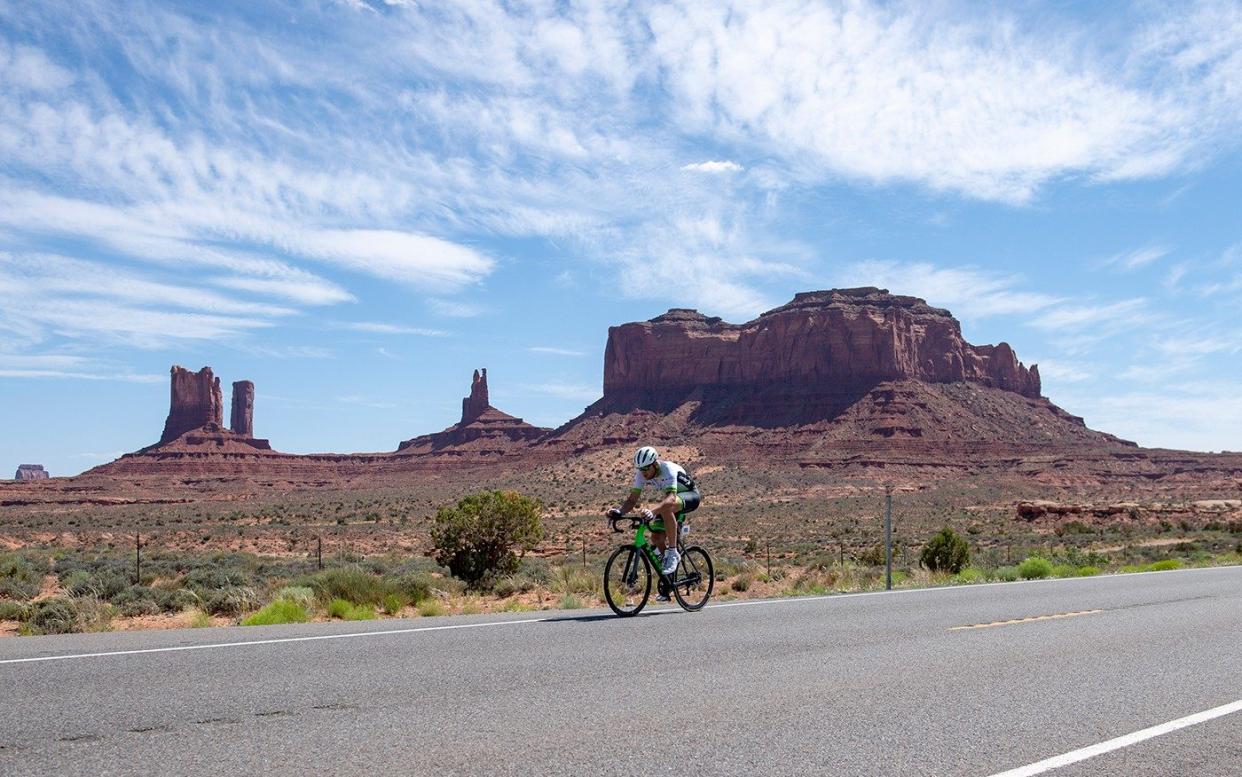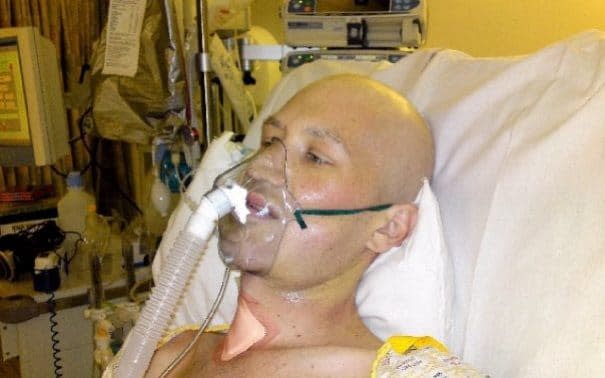Meet James Golding, the man who has had cancer twice and been hit by a truck... but refuses to be beaten

“People say I’m unlucky because I’ve had cancer twice and I’ve been hit by a truck,” remarks James Golding matter-of-factly. “But I think I’m the luckiest man alive.”
As a summary of Golding’s philosophy on life, it is difficult to beat that line, taken from a short documentary about the ultra-endurance cyclist released by Red Bull Media House earlier this year. The film, catchily titled ‘James Golding: the man who refuses to die’, was meant to coincide with Golding’s attempt on the Race Across America; the infamous 3000-mile ultra-distance cycling challenge which began life in 1982 as the Great American Bike Race and each year sees a load of like-minded nutters set off from California, west to east, crossing 12 states and taking in roughly 175,000 feet of climbing in the process.
Golding, who turned 40 in July, was meant to have retired from all that ultra-cycling nonsense by now.
That race was supposed to be his swansong. After a decade spent raising money (over £3million in total, mainly for cancer charities), motivational speaking, mentoring young kids, breaking world records (Golding set a new seven-day world record in 2017, riding 2842 km around Rugby in a week), and generally being inspirational, he was meant to be living the good life out in Portugal.
The plan had been to compete in RAAM - win it, ideally - before settling down with wife Louise and their two children, eight year-old Freddie and two year-old Lilah, in their villa in the Algarve, which they have been renovating since last year ready to run as a cycling retreat.
“Then coronavirus hit,” Golding says. “It was a nightmare. We had completely sold up in England; our houses, our business. We were all in. Suddenly we had all the uncertainty over the renovation works, over the kids’s schooling.
“Louise was trying to homeschool which was stressing her out beyond belief, translating everything from Portuguese into English and then back into Portuguese again. Meanwhile, I was trying to get my kit on and get out the door for seven-hour training rides…”
When RAAM was officially postponed by 12 months, Golding admits the initial feeling was one of relief.
“But that soon turned into a bit of a downer. I was in the shape of my life earlier this year. I was ready. Suddenly it was the realisation that I had another 12 months of this, with all the Covid uncertainty and no income. Plus, it was my 40th on July 4 and the idea had always been that we would finish RAAM and Louise and Freddie would come out to New York for three or four days and then fly home. I’d celebrated my 30th in Austin, Texas, so the idea of celebrating my 40th in the USA was pretty cool.” Golding pauses. “Mind you,” he says. “I wasn’t meant to make 30 let alone 40 so it’s not all bad.”

Every cloud and all that. Golding’s life story is truly astonishing. Humbling and inspiring in equal measure. Having struggled at school - Golding suffered from dyslexia, although he did not know it at the time - he eventually left at 14, falling out badly with his parents. But he was always fuelled by a desire to prove people wrong. “I think that comes from people telling me ‘You’ll never achieve anything. You’re a dosser.’” he says. “Me and my Dad fell out about it for years. But I had friends sitting their GCSEs in 1996 and I was earning £300 a week.” By 22, Golding was “living in my own house, driving my own car and earning good money as an estate agent” although looking back now, he admits he does “not like the person I was becoming”. He might well have continued to climb that greasy pole, however, were it not for what happened next.
In November 2008, Golding was admitted to hospital with severe back pain. Doctors found a tumour with a diameter of 11.5 cm, roughly the size of a grapefruit, lodged between his spine, kidney and intestine. It was inoperable. The only possible treatment was high-dose chemotherapy. Golding lost nearly six stone, and was given a five per cent chance of survival. “If I hadn’t been as young as I was and as fit as I was, they would have put me in the corner and made me comfortable,” he says. “I weighed just over six stone. They’d brought my bowel out on the the surface.” Golding’s life had changed forever. “I was 28 years old and I had my mum wiping my arse. None of what mattered before mattered any more.”

After relearning how to walk, talk and move his head, he found his calling. Cycling gave him the freedom, the discipline, the canvas on which to express himself. Plus, he found he was brilliant at it; a diesel engine allied to a naturally low heart rate even in extreme conditions. Golding has been unstoppable ever since. Even when he was hit by a truck travelling at 70mph while cycling across the States. Even when the cancer returned in 2013, this time in his abdomen. He ploughed on.
Depression, he says, was harder to deal with; an invisible enemy. “Cancer is something that you can see in a roundabout way,” he says. “There are scans, there are blood tests, there is chemotherapy, radiotherapy. There is a support network that’s there to look after you. Depression is something that you can wake up in the morning and it’s there. Depression is something that you can go to bed at night and it’s gone.”
It took his son to snap him out of it. “Freddie had drawn a picture and the only person who wasn’t smiling was Daddy,” Golding recalls. “That was when I started to talk to somebody. But depression is like being an alcoholic. It will never go away. What I’ve learned to do is to understand some of those things that bring it on.”
RAAM may have been cancelled this year. Golding may not yet be taking bookings at his Portuguese villa. But he will be keeping things in perspective. “Every cloud has a silver lining,” he repeats. “The fact that we’re doing RAAM next year now means that I get another year of training. All of my sponsors have stayed on board for another 12 months. I have nothing to complain about. I’m one of the lucky ones. It’s about mindset. It’s about attitude. I’m going with the attitude that I can win it. I believe I can.”


